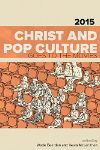- Author(s): M. Gail Hamner
- When: 2014-04
- Where: Journal of Religion & Film
This paper uses the affect theory of Gilles Deleuze, Raymond Williams, and Lauren Berlant, and the phenomenology of Merleau-Ponty to examine how affect constellates to film Christian reconciliation in Terrence Malick’s 2011 release, The Tree of Life. As a working shorthand, we can understand affect as the fungible set of bodily processes that affirm, sear, or reshape a body’s and society’s relational structures. I contend that the film’s fluid montage—analyzed with Deleuzian film theory—generates a non-reactionary nostalgia that binds Christian theological hope to the persistent melancholy of loss through the blurring of perception, memory, dream, and fantasy. Such blurring evokes the cultural ache to escape what Lauren Berlant terms the failure of the fantasy of “the good life.” In short, I argue that the fluid tactility of Malick’s camera consciousness responds to the persistent threat of losing ‘the good life’ through the human ache for (Christian) redemption, and it does so with an active nostalgia that remains embodied and terrestrial.









